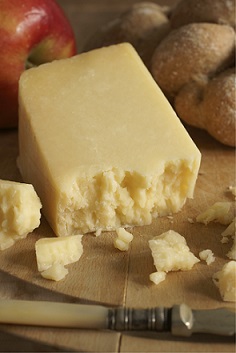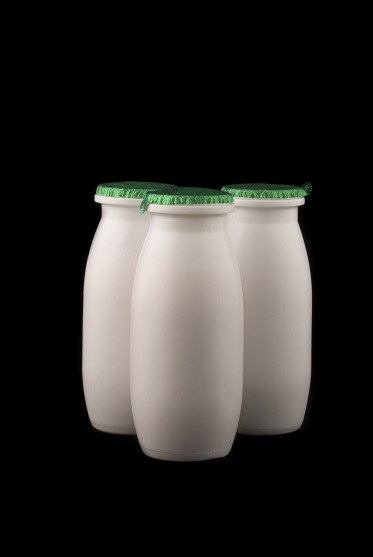 Calcium ranks as the fifth most abundant mineral in the Earth’s crust (3% in total), and as the single most common metallic element in the human body.
Calcium ranks as the fifth most abundant mineral in the Earth’s crust (3% in total), and as the single most common metallic element in the human body.
99% of calcium in humans is stored in our skeleton, why is why calcium supplementation is so popular among older women for beating osteoporosis. Indeed, say calcium to the average man and he’ll probably think of three things – healthy teeth, strong bones, and fresh dairy products from cows roaming around green fields.
However, calcium has far more alternative roles in health than many people realise. The 1% not found in bones is used for neurotransmitter release, cellular functioning, maintaining a regular heartbeat, muscle contraction, and various cellular signals.
Calcium is rarely discussed in regards to acne; zinc and selenium are the most famous acne minerals. Do any of calcium’s non-bone related functions wind up affecting your skin?
Calcium’s role in insulin sensitivity
Firstly, there’s no evidence that calcium has a role in chronic inflammation, the root cause of acne. Calcium is needed to manufacture some immune system agents connected to acne, such as TNF-a and interleukin-6, but that’s all. Nor does calcium have strong links to stress hormones like cortisol, gut health, or the skin’s resistance to UV rays.
One area where calcium might have an effect is insulin. Calcium is involved with many cellular signals in the body, and this may extend to the receptiveness of glycogen stores to insulin molecules.
This study tested 96 female teenagers, of whom 49 were obese and 47 healthy. Levels of dietary calcium were much lower in the obese girls, and most importantly, they also had higher insulin.
Read Annihilate Your Acne – get the ultimate diet and clear your acne permanently!
A study from 1997 fed 1500mg of calcium to 21 non-diabetic subjects each day. In addition to the expected blood calcium increase, there was an increase in insulin sensitivity and decline in blood insulin levels. That’s exactly what we want for acne, as insulin is the most dangerous stimulator of oily skin, via activating the skin’s sebaceous glands. Higher insulin sensitivity means that less bloodstream insulin is required.
A 2009 study was similarly promising, gathering 31 people with either hypertension or type 2 diabetes. After taking a calcium supplement for 3 weeks, their calcium levels increased and their insulin sensitivity was sharpened.
That’s 3 positive studies, but the good news ends right now for calcium.
This 2011 study found several bad results; serum calcium levels were “significantly and positively” correlated with fasting blood glucose, fasting insulin, and insulin resistance in men.
This study on Newfoundland residents found correlations between high calcium levels, insulin resistance and higher blood glucose levels. This study was particularly interesting, as it analysed elderly men and concluded that while endogenous (supplementary) calcium was linked to impaired beta-cell insulin sensitivity, dietary calcium had no effect at all. Another three studies found that high serum calcium correlated with type 2 diabetes.
Then there’s more mixed studies; this one found that calcium levels have no association with insulin sensitivity at all. This study found that serum vitamin D levels had a close inverse correlation to type 2 diabetes, but that calcium didn’t.
Calcium affects insulin in several known ways. It’s used to manufacture the GLUT-4 transporter which allows insulin to transport glucose, meaning that less insulin molecules are required. On the other hand, calcium is an ingredient the pancreas uses to manufacture insulin in the first place. Too much might lead to an uncontrollable overdose.
My analysis is that an especially large calcium deficiency could lead to impaired cellular signaling and therefore higher insulin. But taking enormous doses for bone health could do the exact same. The evidence is inconclusive.
Does calcium increase antioxidant supplies?
According to many theories circulating the internet, calcium is a co-factor required in catalase synthesis, a self-manufactured antioxidant. Catalase is known for building itself into skin tissues, and that gets many acne patients excited. It is true that acne patients have lower catalase levels than average. For example, this study on 32 acne patients found significantly lower bloodstream levels compared to 34 healthy controls. This study found a strong inverse correlation between bloodstream catalase and total acne lesion counts.
Catalase is quite well researched, as it’s known to finish off the antioxidant work of superoxide dismutase, which breaks down superoxides (very deadly free radicals) into hydrogen peroxide and oxygen. Catalase then breaks down the hydrogen peroxide.
The problem is that calcium does not increase catalase. There’s no scientific studies I know of supporting the theory. The main two co-factors required for catalase are manganese and iron, not calcium. Elsewhere, calcium has few decent studies for lowering free radicals. In fact, the bulk of the scientific evidence suggests that taking large calcium supplements (not normal dietary intakes) might well increase free radicals and oxidative stress.
The top 7 topical treatments for clearing acne naturally
The human body ordinarily produces moderate amounts of free radicals for healthy functions, such as molecular signalling. Supposedly, excessive calcium intake can flip a switch in the immune system that causes these free radicals to get completely out of control and attack healthy cells. This was achieved by excess blood calcium inundating the body’s cells.
This 2010 study found the exact same thing. Excessive cellular calcium led to interference with glutathione, excessive nitric oxide production, and high production of lipid peroxides. These rampaging free radicals could even increase blood calcium levels themselves. The scientists painted an apocalyptic scenario of blood calcium getting elevated, free radical production accelerating, and calcium being pushed up further to create a “feedforward, self-amplified loop”.
This study found that far from being a beneficial mineral like zinc or selenium, calcium deficiency can increase the activity of the antioxidant glutathione. This could also mean that excess calcium decreases glutathione.
Another mineral required for glutathione synthesis is magnesium. Magnesium and calcium act in tandem, blocking each other’s effects when the ratio between them gets too unbalanced. If you take in too much calcium, your magnesium will fail.
That’s one reason why isolated calcium supplements have been shown to increase heart disease by 31%; magnesium is critical for keeping your heart beat steady and your muscles relaxed. This is a real problem for acne too, as magnesium is necessary for restraining stress hormones, calming you into a deep sleep, and maintaining proper insulin sensitivity. In fact, this blocking effect on magnesium could explain why high calcium doses flip a switch and become bad for insulin. With 80% of Americans being deficient, low magnesium is an epidemic, so this makes calcium overdoses particularly bad news for acne.
The verdict – large doses of calcium may worsen acne by blocking magnesium and increasing free radical generation.
Calcium may control sleep quality
From all my research, there’s only one obvious pathway through which calcium can affect acne, and that’s by manufacturing the neurotransmitters responsible for sleep.
Calcium is already known to manufacture dopamine, the reward hormone, which controls many addictions such as sugar and gambling…
…and the sleep hormone melatonin is another which calcium controls. Melanin is secreted by the pea-sized pineal gland in your brain. Levels rise naturally as a response to darkness, and induce drowsiness; hence why the human species sleeps at night.
Calcium acts as a precursor to melatonin by allowing the brain to use the amino acid tryptophan more efficiently. Tryptophan is a precursor to serotonin, the happiness hormone, and serotonin is the main precursor to melatonin.
It’s a simple connection, and several studies have confirmed calcium’s power. Firstly, we have this study and this study on the pineal glands of animals, where calcium was found to increase melatonin output. Next, there’s a study which found that calcium is required for activating tryptophan hydroxylase, which manufactures serotonin.
Why dairy can either destroy your skin or improve it
Finally, a study published in the European Neurology Journal analysed the effect of calcium on sleep directly. They found that calcium levels reach their highest during the deepest levels of sleep, such as the rapid eye movement (REM) phase. The study concluded that impaired sleeping during deep REM phases are strongly related to a calcium deficiency.
So far, there are no direct studies linking melatonin levels to calcium in humans, but the role of calcium in making serotonin is well established.
As for how sleep deprivation affects acne, the list is long, including spiking stress hormones and surging pro-inflammatory chemicals. Again, you don’t want to overdose on calcium, because magnesium is also needed to manufacture melatonin in the pineal gland, and calcium can block magnesium’s effects. Simply correcting your calcium intake to the normal level will work.
The verdict on calcium
 The secret of calcium for acne is simply to reach the optimal intake for human beings, and then forget about it.
The secret of calcium for acne is simply to reach the optimal intake for human beings, and then forget about it.
Calcium is not a super-mineral like zinc or selenium. Overdosing on calcium can make your body pump out too many free radicals, become insulin resistant, and interfere with the potency of the mineral magnesium. Too little calcium can impair your neurotransmitters and damage sleep quality.
The simple solution is to aim for the RDI of about 800mg per day, which unlike the low RDIs for vitamin C and vitamin E, is actually an accurate target. This should be combined with increasing your magnesium intake, to keep the ratio between the two correct. More on magnesium here.
Another important mineral is vitamin K2, which shunts the calcium in your bloodstream to where it needs to be, such as in the bones or teeth, rather than building up in the pineal gland or arteries.
The strategy for calcium
There are countless people around the world taking isolated calcium to boost their bones, but most evidence suggests that they’d be better off improving their diets instead.
Statistics from various studies on calcium supplements include: 31% higher risk of heart attack, 20% higher risk of a stroke, 20% higher risk of death from CVD, 139% greater risk of heart attack, and a 40% higher risk of early death in women. Meanwhile, dietary calcium had no effect for most of those statistics.
So what if your skin cannot tolerate dairy, like many people? Green vegetables like kale and lettuce are great sources. Green lettuce (not iceberg) is fantastic; 100 grams contains 150mg and you can guzzle down endless amounts because it’s a zero calorie vegetable.
Spinach looks fantastic on paper, but is too high in oxalates and is thus merely good. Never forget about mineral water, which is a great source of both calcium and magnesium. Good quality mineral water can provide up to 200mg (25%) of the RDA per day.
Get down to the local fishmonger and buy some fresh salmon or herring or sardines, and try to eat the tiny chewy bones if you can avoid choking. It’s believed that back in prehistoric times, humans acquired much of their calcium from tiny bones in the wild animals and fish we hunted.
You don’t have to be incredibly accurate and obsessed; an intake of up to 1200mg will not trigger a massive acne explosion. As we just discussed, calcium supplements are the real villains.
NEXT: get the complete strategy for clearing acne naturally
Thanks for reading!


Do you think milk could be turned into a healthier (acne-friendly) drink by dissolving dark chocolate over a hot stove?
Anything that adds dark chocolate is a good idea Jonathan. However, if you’re sensitive to the proteins in milk like casein or whey then dark chocolate wont negate it. Essentially, if you have the classic dairy outbreaks that everyone fears. IF you can tolerate milk then dissolving in dark chocolate is a great idea, but make sure the coca content is at least 70%, preferably 85%. Recipes like this are great for keeping the variety on an acne-friendly diet too, once you’ve eliminated old favourites like pizza (except every so often), to prevent mental monotony.
I know I can tolerate “raw milk” which has the good bacteria and live digestive enzymes… Pasteurised is obviously less than ideal. It still seems strange though why it would be bad considering that it doesn’t to be unhealthy in an obvious way like coca cola
Greetings Jonathan, it’s because milk is simply a very powerful biological substance. It is designed to grow a calf into a fully fledged cow, so it’s packed with strong hormones (IGF-1) and other proteins (casein) which are perfectly suited to young cows, but possibly not human beings. Personally, I can tolerate milk well. It’s a food which depends completely on the individual.